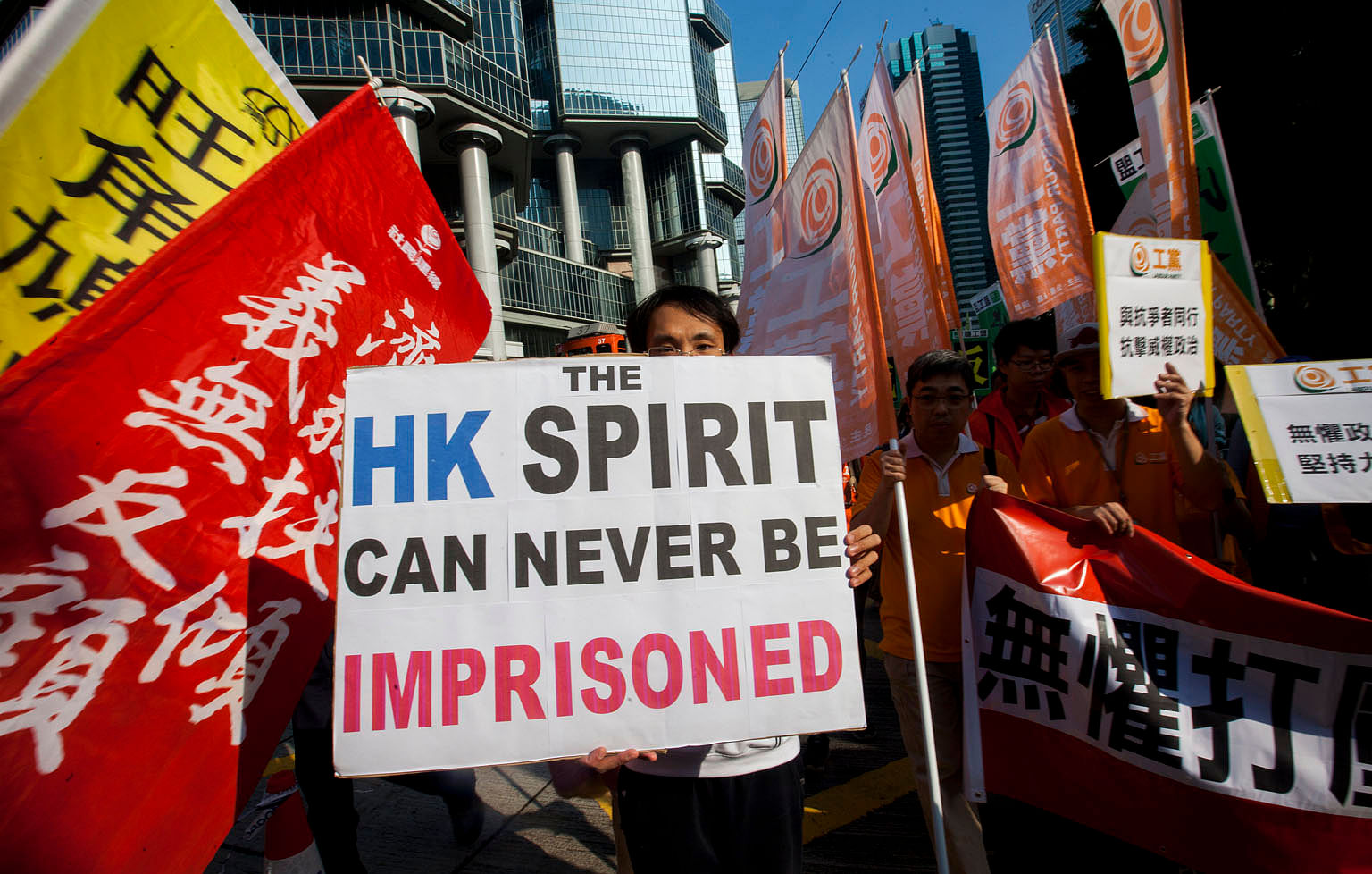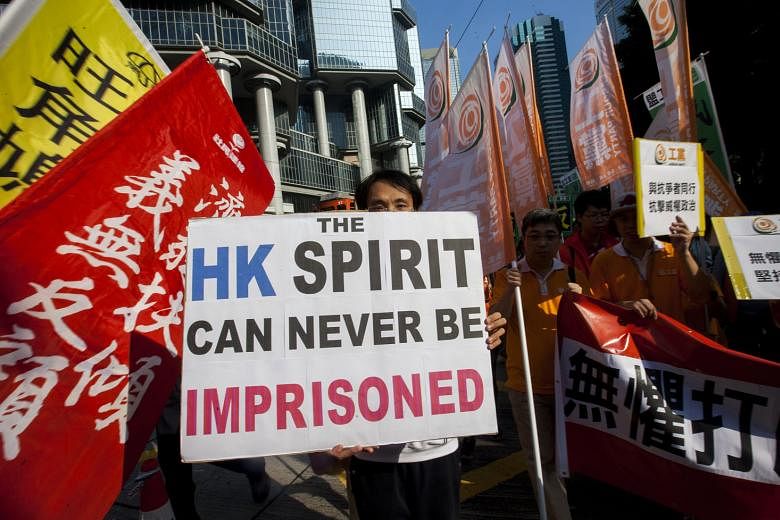Democracy is work in progress
Endy Bayuni
THE JAKARTA POST, INDONESIA
The late Suharto has become something of a poster boy for leadership as (Indonesia) searches for a president who can effectively deliver the goods.
Photos of the smiling president, who ruled Indonesia between 1966 and 1998, appear everywhere, with the caption in Javanese, "Piye kabare, isih penak jamanku, tho?" (How are you, better in my era, wasn't it?), a reminder that for some, life was so much better then.
Suharto was a dictator. But the point of the poster is that Indonesia had a leader who delivered the goods.
President Suharto, who ruled with an iron fist, did deliver justice, security and welfare, but it is debatable whether his successors have fared better or worse.
The bigger question is whether democracy can deliver justice, security and welfare to the people, all the people.
Indonesia, now a democracy for nearly 20 years, albeit a struggling one, makes a good case study to answer this question.
The track record of Indonesia since 1998 has not been bad, although perhaps underappreciated.
The economy has improved significantly, in terms of overall GDP and per-capita income growth, and the government today provides many services such as free healthcare, 12-year compulsory free education and cash assistance for the poor. Indonesia is today the 16th-largest economy in the world, and many predict it will be in the top 10 by 2025 and top five by 2040.
And there is freedom, all kinds of freedom, something that distinguishes today's era from that of Suharto.
Why, then, do some people still feel that they miss Suharto?
Perhaps they don't really miss him, but they miss the certainty, the swift way decisions were made and the security he provided. They miss the effectiveness and efficiency that an authoritarian regime can deliver.
Democracy, unfortunately, is almost anything but that.
Decisions are made through an arduous and cumbersome process, and the government is often mired in stagnation. We also have legislators who are good at grandstanding but ineffective in producing laws that reflect the aspirations of the people.
These failings of democracy in Indonesia may have revived our memory of the "good old days" of Suharto (while forgetting the worse aspects of his regime), but they should not be used as a pretext for a return to authoritarianism.
Frail hopes for a healthy democracy
Tulsathit Taptim
THE NATION, THAILAND
For the key players, the next election is all about deciding whether to sell their souls.
That is the kind way to put it. Being more direct, we could say brutal and shameless betrayal is in store. Or, in polite language: Some may be forced to join hands with the "lesser" evil.
Whatever happens, it won't be straightforward. All of the players will face unattractive choices.
Let's start with the military, or Prime Minister Prayut Chan-o-cha, to be exact. If political reform is his ultimate motive (his "soul"), he faces an acid test.
To extend his stay at the top, he will need the support of people he has often frowned upon. And to win their backing, he is likely to have to embrace practices he has often denounced, in public at least.
Simply put, if the Democrat Party shuns him, General Prayut will have to woo smaller parties.
Now to the Democrats. If wiping out the Shinawatras' influence is their key objective (their "soul"), the country's oldest party also faces a tough choice. Should it work with Gen Prayut to slam another nail in the Shinawatra coffin, or should it tag-team with Pheu Thai first to oust the bigger problem - the military?
What about Pheu Thai? Two years ago, an alliance with the Democrats was unthinkable. Now, it's what everyone is talking about. The last group comprises the smaller parties. They don't have to worry about selling their souls as much. No disrespect to them, but their main worry is political survival. They will likely sell themselves to the highest bidder, be it the military, the Democrats or Pheu Thai.

Democracy before rule of law a trap
Xiao Ping
CHINA DAILY (ASIA), HONG KONG
A group of people who call themselves "anti-autocracy activists" held a rally here in Hong Kong the other day. As soon as they brought out the slogan of "No democracy, no rule of law", they also exposed the "pan-democrat" camp's ignorance of democratic politics.
By advocating democracy before rule of law, they have laid down a trap that can bury Hong Kong alive.
Rule of law protects democracy; and orderly democracy already indicates rule of law is crucial. If we must decide which one comes first, it has to be rule of law.
Japanese-American political scientist Francis Fukuyama, best known for his "end of history" concept, shot to fame after his book The End Of History And The Last Man was published in 1992, following the demise of the Soviet Union and end of the Cold War, demonstrating his conclusion on the triumph of Western liberal democracy.
More than 20 years later, however, Dr Fukuyama realised not only that history was far from over but that many countries were victimised by Western liberal democracy, as shown vividly when colour revolutions ravaged the Arab world while Western democracies found themselves mired in "vetocracy".
Shocked, he sat down, collected himself and wrote another book: The Origins Of Political Order.
In The Origins Of Political Order, Dr Fukuyama traces human history over 2,000 years to pick out the intrinsic logic of political development. He believes political order comprises three elements: government efficiency, rule of law and democracy.
Government provides public resources and people cannot be happy and content if the government is inefficient. Rule of law is tasked with maintaining social order and society will fall apart without it.
The core of democracy is accountability, which ensures the government follows popular will, rather than a simplistic model of "one person, one vote".
Dr Fukuyama's retrospection led to his idea of the logical order of political development: First, the government must be capable of doing its job well; second, a rule of law system must be established from the top down; and, under the regulation by rule of law, comes democratic accountability and public participation (in democratic exercises).
This "political order" must not be reversed, or democracy will become populism and out of control, leaving social order in shambles as a result.
- The View From Asia is a compilation of articles from The Straits Times' media partner, Asia News Network, a grouping of 23 news media entities.

